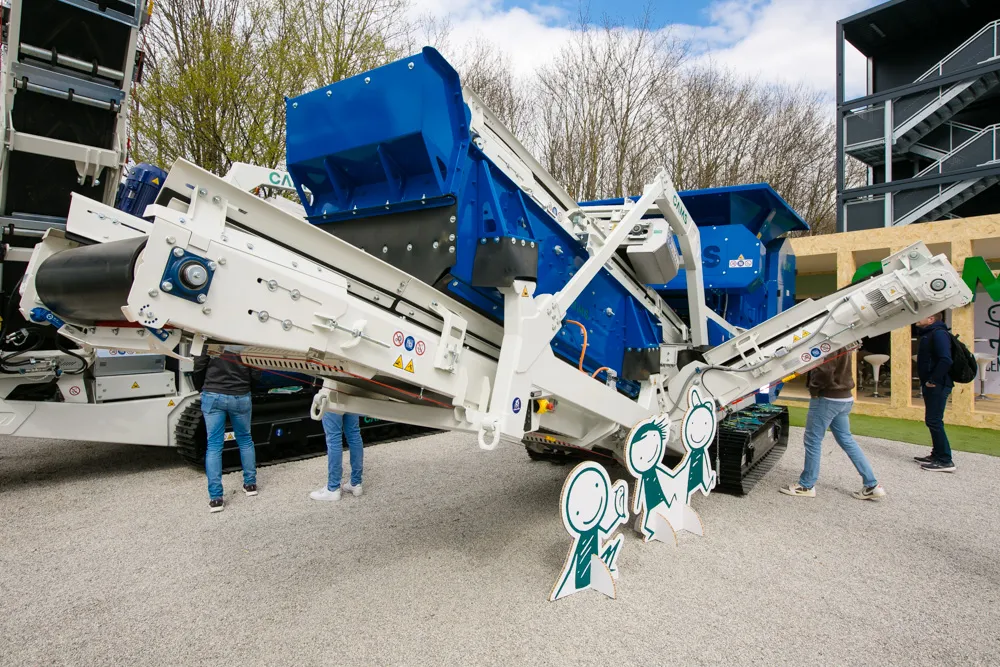
Cams has expanded its Centauro range of combined shredders and screeners with the addition of the Centauro 75.25. This is the fifth and smallest member of the Centauro family, weighing in at 15,000kg. It is 10m long and provides a potential output of 100tonnes per hour.
Like its bigger siblings, the Centauro 75.25 integrates a shredder, screen and magnetic separator into one mobile machine with one engine and one set of tracks. The baby of the family, Centauro 75.25 would be very at home in a small asphalt-recycling yard or working for an owner operator, according to Cams engineer Filippo D’Addato.
The dual-shaft, slow-speed shredder means that the Centauro range is ideally suited to recycling asphalt planings, explained D’Addato: “With a slow speed, you do not crush the stone which means that the bitumen doesn’t get pulverised and lost as dust, so you don’t need as much fresh bitumen when you are making a new mix,” he said.
Avoiding cracks in the aggregates also reduces the energy needed at the asphalt plant when making the new mix, said D’Addato.
Water can seep into aggregates containing small cracks, which means that more energy will be needed to dry out the recycled asphalt and get it up to the right mix temperature.
The Centauro 75.25 has a FPT F36 105 kW diesel engine and a MecceAlte 165 kVA alternator. Once in location, the shredding and screening equipment can be powered by the engine or attached to a local electricity supply if lower emissions are a priority.








